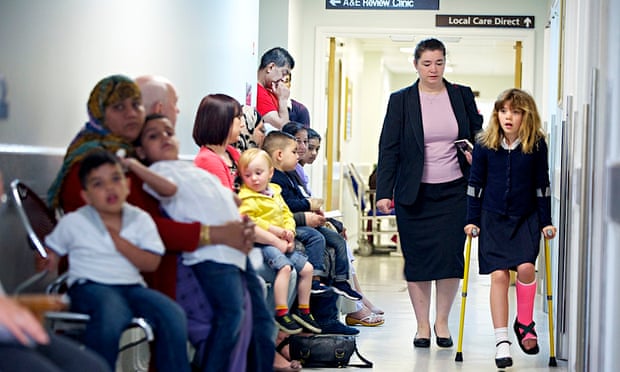NHS plea to expat GPs in Australia: come home
Call for those on career breaks to plug the gap as shortfall of 1,000 family doctors in England is revealed

A shortfall of 1,000 GPs in England is revealed in figures published on Sunday, with the NHS being forced to advertise in Australia for British doctors on career breaks to come home and plug the gaps.
Staffing levels have failed to keep pace with the increase in population, according to an analysis commissioned by the Labour party. If the number of people per GP had remained at the 2009 level, there would be an extra 1,063 GPs, which Ed Miliband’s party claims would bring huge relief to the system.
British GPs working in Australia have been targeted through an advertisement in two medical magazines urging them to return home and practise in the UK. The advert promises a “fully funded induction and returner scheme” if they return, and emphasises that practices taking part in the scheme are “looking to recruit permanent GPs”.
The advert, placed by NHS England’s Shropshire and Staffordshire area team and Health Education Midlands, ran in November and December.
The shadow health secretary, Andy Burnham, claims that the new figures, provided by the House of Commons library, prove that the NHS has a GP recruitment crisis.
Difficulties faced by patients trying to get GP appointments have been cited as one of the reasons for a huge surge in the number of people arriving at hospital A&E departments.
Burnham said: “GP services have gone into freefall under this government. David Cameron promised to put GPs at the heart of the NHS, but instead caused a new GP recruitment crisis. Under his government, it is getting harder and harder to get a GP appointment as a result.”
NHS England recently announced a £10m strategy to tempt medical graduates to become GPs, and experienced GPs to delay retirement. The ideas included a new national scheme for returners and cash inducements if they agree to work in an area with a shortage of doctors.
The Department of Health is understood to be concerned by the current ratio of GPs per person. National figures from Health Education revealed that just 23% of trainees in 2014 planned to go into GP training. The figures showed a fall of 6.2% on last year, with just over 5,000 applicants in total.
Sir David Metcalf, chairman of the migration advisory committee, criticised the coalition’s record on GP recruitment last month, when explaining why he had not put GPs on the shortage list of occupations that allows more non-EU recruitment.
“There is no shortage of medical students. The issue is that they have got the incentives wrong and they are not encouraging enough people to go into GP training,” said Metcalf.
The soaring number of female doctors working part-time in surgeries was cited last week as a contributory factor in the GP recruitment crisis.
The migration advisory committee said that the “feminisation of the GP workforce” meant more trainees were needed to maintain the same service for patients because women were more likely to work shorter hours than men after they have children. This has contributed to an annual shortage of 450 to 550 GPs, the committee warned.